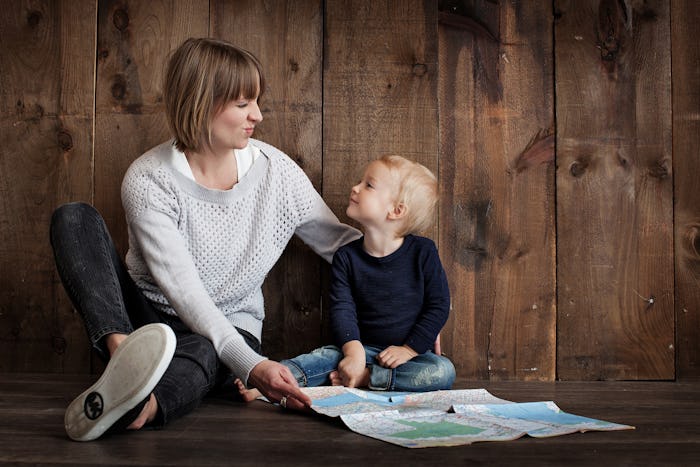News
How Being Your Kid's "Best Friend" Actually Hurts Them Later In Life
There are lots of conflicting theories about the "right" way to raise kids, and the most effective techniques can vary wildly from family to family and even from kid to kid. But there are two elements that are crucial to giving children the best shot at growing up to be happy, successful adults, one psychologist who specializes in the psychology of teenage girls told Quartz recently: affection balanced with structure. Becoming your kid's best friend isn't beneficial to them, while not providing any affection is clearly also a bad idea. Balancing the two provides a bedrock for the kind of relationship kids need with their parents, and can improve their outcomes in education, mental and behavioral health, overall wellbeing, and more.
But when it comes down to it, Lisa Damour said, structure should take precedence over lots of hugs and kisses, if both aren't possible for whatever reason. That may surprise many parents who think there's nothing worse than not constantly reinforcing their unconditional love for their kids, but Damour believes that sacrificing structure would be the greater evil. Simply put, a lack of discipline will make kids ill-equipped with the challenges of adulthood, Damour, the author of the book Untangled: Guiding Teenage Girls Through the Seven Transitions Into Adulthood, said. And it can leave them feeling adrift in the moment, as she explained to Quartz:
They can get warmth from their teachers, from their friends' parents, but they can only get structure from parents. ... Being a teenager feels like you’re out of control and you’re surrounded by people who are out of control. You don't want parents to be out of control.
Some moms and dads may be afraid of falling into the trap of becoming "helicopter parents," but it's not the same as setting up structure for kids to learn to operate independently from a young age, neuropsychologist Karen Spangenberg Postal wrote for Psychology Today. Lending them "external structures" such as setting bedtimes and having them mark and consult a calendar to remember when their library books are due helps them to better regulate their emotions, resist impulses, organize their time, and even plan into the future, Spangenberg Postal stated. Most importantly, this type of parenting helps kids to become responsible and develop skills they can transfer to their adult lives.
Back in 2013, former Secretary of State Colin Powell delivered a convincing TEDxTalk about kids' need — even hunger — for structure in their daily lives. In the talk, Powell shared his personal experience of rising from an average student to a successful adult with the support of his family and community. "Children need a network, to be part of a tribe, a community," he told the audience at the time. "It's so essential that we put this culture back into our families."
While making sure kids have structure is essential, many positive outcomes have been associated with showing them affection, too. According to Parent.co, a 2010 Duke University study found that adults whose moms were affectionate with them as babies were less anxious, less likely to report negative social interactions and psychosomatic symptoms, more resilient, and happier overall. In general, the outlet reported that affection has been linked with better communication among parents and kids, higher self-esteem, better academic performance, and fewer psychological and behavior problems.
As always, how parents will implement this advice depends on their specific family dynamics and their kids' own personalities and needs. But working to weave both structure and affection into their upbringing is key.
